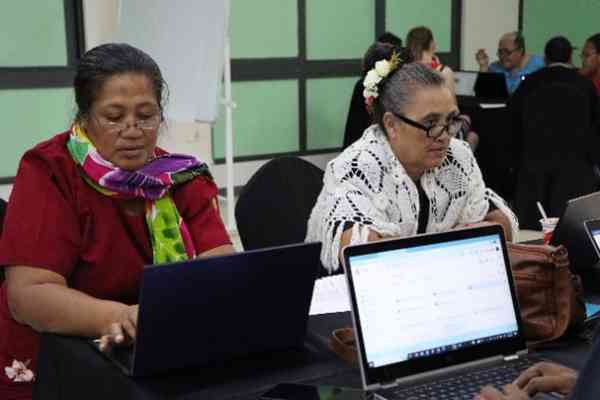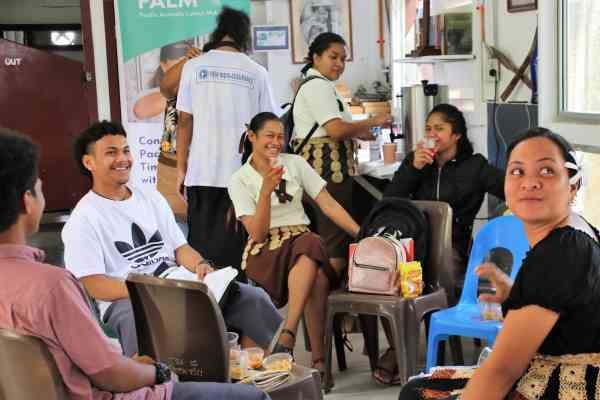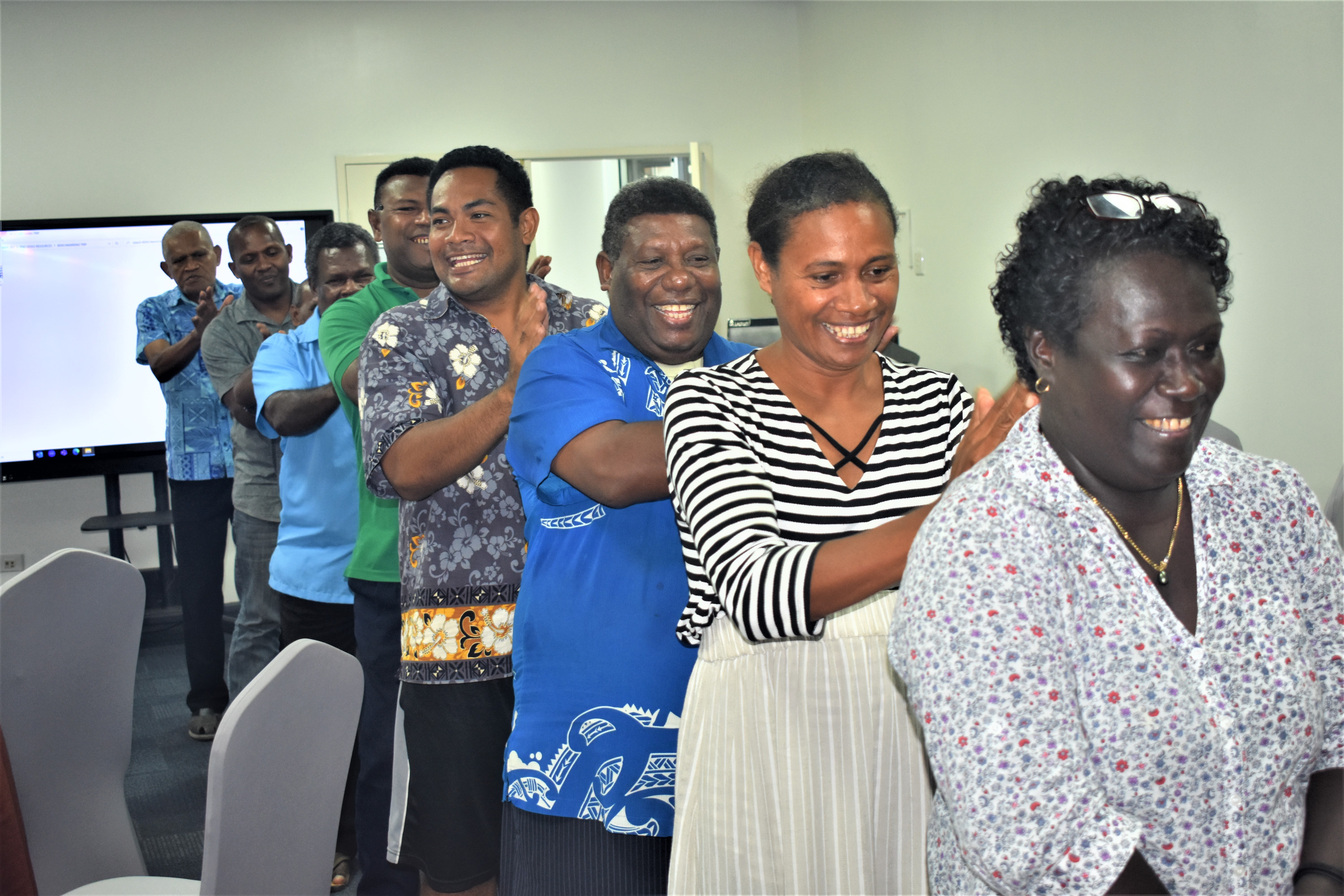
The first-ever regionally accredited resilience qualifications available in certificate and diploma levels have created compelling dialogue in the education community after the Pacific Community’s (SPC) Pacific Adaptation to Climate Change and Resilience Building (PACRES) project conducted orientations on the courses in Papua New Guinea (PNG) and the Solomon Islands.
A total of 35 Vocational Education and Training (VET) institutions showed interest in offering the qualifications during the informative sessions on the courses held in PNG. The qualifications consist of levels 2 and 4 Certificates and levels 5 and 6 Diplomas in resilience.
With a pathway on qualifications already embedded in PNG’s national qualifications framework, Assistant Secretary for VET curriculum division, Mrs Violet Gerega said the Resilience courses would integrate well into their current qualification system.
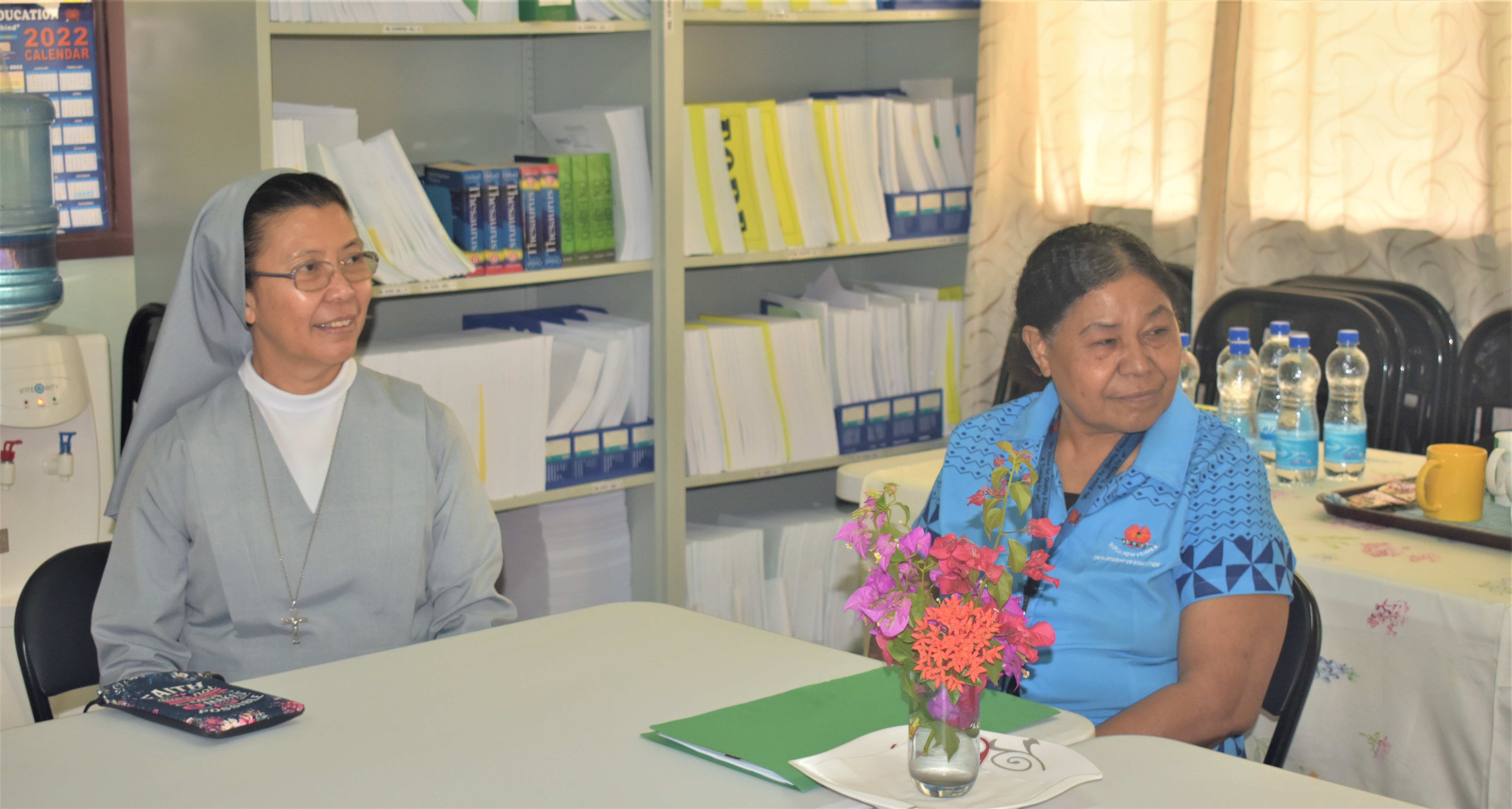
“All the levels have been captured in our national qualification framework. The articulation pathway is already established from National Certificate 1 (NC) to national advanced diploma,” said Mrs Gerega.
“In the past, vocabularies like dropouts, failures and second-class were used to describe VET students. We don’t use these types of vocabulary anymore because the articulation pathway leads up to university so those who have gone through vocational centres can make it up to the university level".
“My encouragement to those who are thinking that vocational centres and dropout and failures are second class is to dismiss that thought because they can also achieve qualifications that university graduates can achieve,” she added.
Mary Help of Christians Professional Training Center (MHCVETFC), located in the East Boroko Province in Port Moresby is one of the schools that has shown interest to offer the certificate level of resilience qualifications.
Being the newest FODE (Flexible, Open & Distance Learning) registered vocational training centres in Port Moresby, MHCVETFC offers courses for those who have failed grade 10 exams. These include certificate levels in commercial cookery, hospitality operation, office administration, dressmaking and tailoring.
The school has extended its optimism toward the resilience courses and stated that this would elevate its school portfolio whilst also giving more opportunities for students to develop their proficiency and awareness of climate change to secure a job in its field.
“With the proper coordination from the department of education for proper teachers to teach this qualification, we are looking forward to the resilience courses being offered in this institution, because we believe that resilience is one of the needs of the time with so many global crises we have on climate,” said Sister Cristina Vilalasanta of MHCVETFC.
Similar sentiments were captured during the orientation held in Honiara, as the qualifications have been tagged for their relevance by education experts in the Solomon Islands.
Director of the Solomon Islands Tertiary Education and Skills Authority (SITESA), Goldie John Lusi said tackling climate change was not an easy task and other avenues and ways were required. One particularly is to build the capacity of communities and residents.
Mr Lusi said involving vocational education providers to offer the qualifications was crucial as youths would make up the next generation of leaders and it was important to build their capacity on issues pertaining to climate change and disaster preparedness.
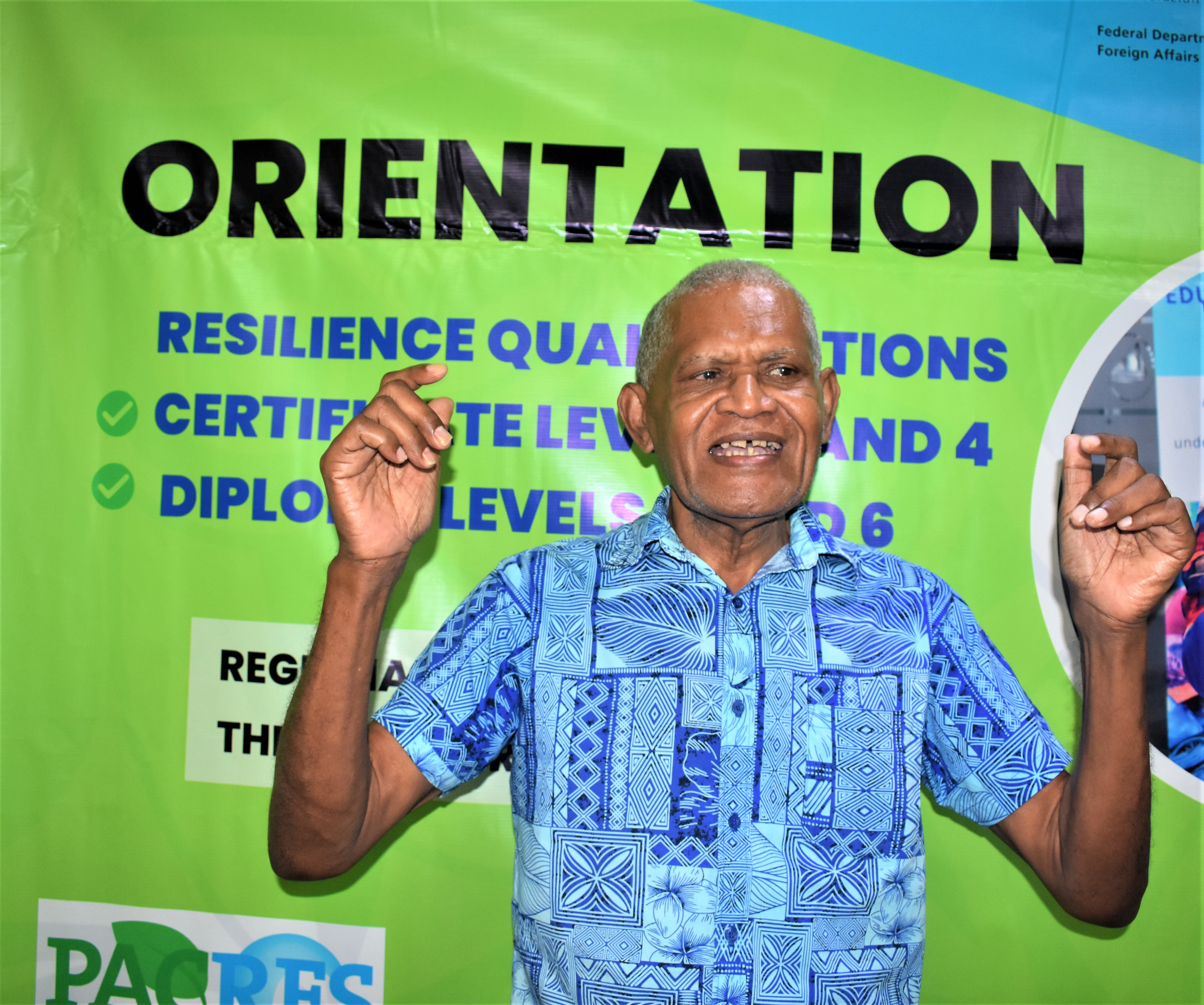
Echoing the same views was Mr Billy Mae, the current Director of the Solomon Islands Association of Rural Training Centres (SIARTC). Mr Mae is known to be a champion for TVET and currently manages the 70 rural training centres in the Solomon Islands.
“This qualification will not only educate youths and community members to practice disaster preparedness in real-life situations but making these qualifications available will give people the recognition needed to best represent their communities in the education and employment sectors in the field of climate change,” said Mr Mae.
In addition, the PACRES project has also shared its commitment to providing TVET tools and equipment that will assist institutions to offer the courses in their respective countries.
With the qualifications receiving positive feedback from institutions, PACRES Coordinator Ms Melinda Mathers said the project has oriented the resilience qualification in three countries including Fiji, PNG and Solomon Islands and will soon introduce its contents in Vanuatu next month and to other Pacific Island countries later this year.
The PACRES project is a (EUD) $2.5M with the European Union as the main donor and is jointly implemented by the Secretariat of the Pacific Regional Environment Programme (SPREP), Pacific Island Forum Secretariat, Pacific Community (SPC) and the University of the South Pacific (USP).
By Alisi Vucago-Waibuta
